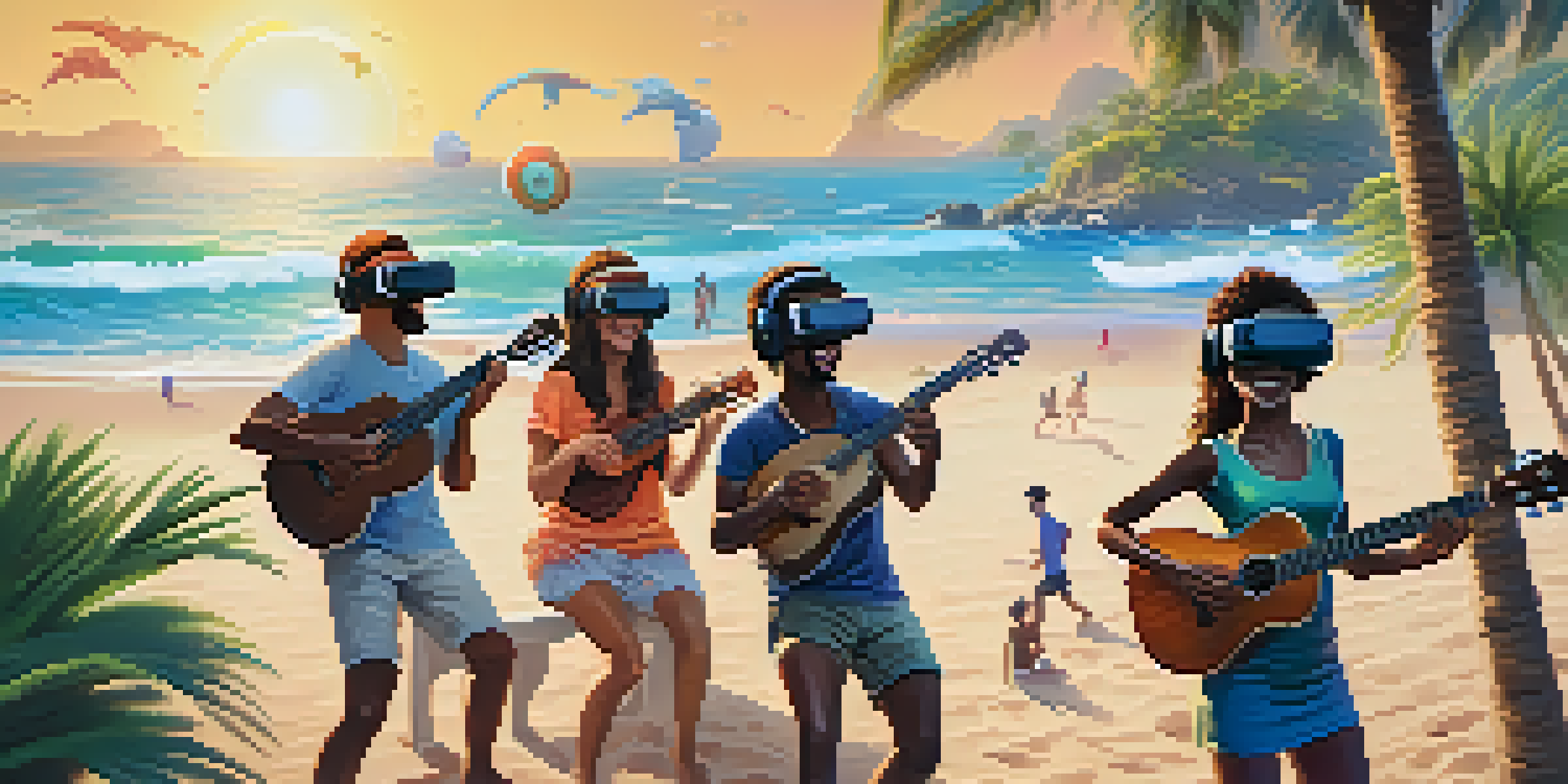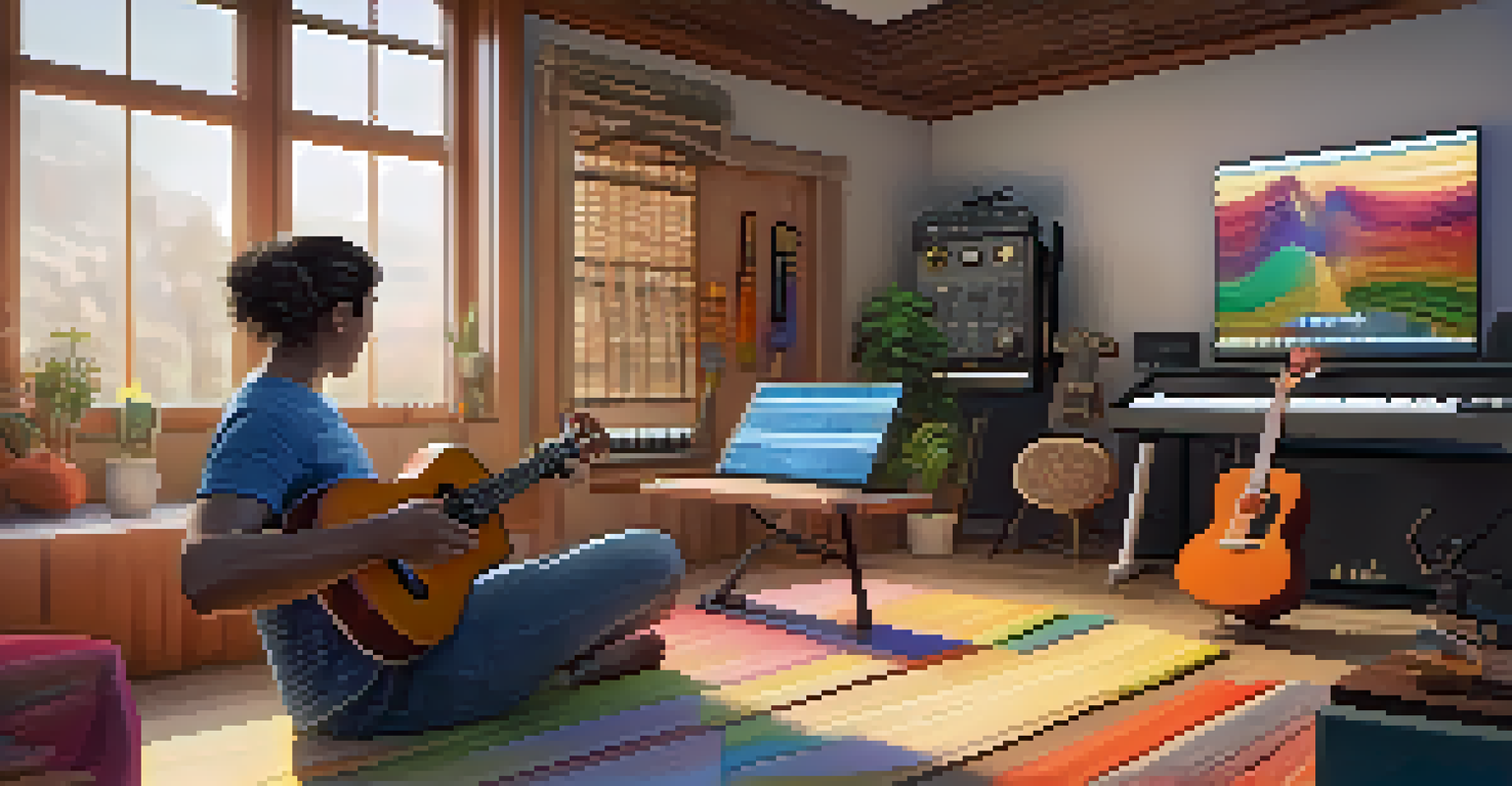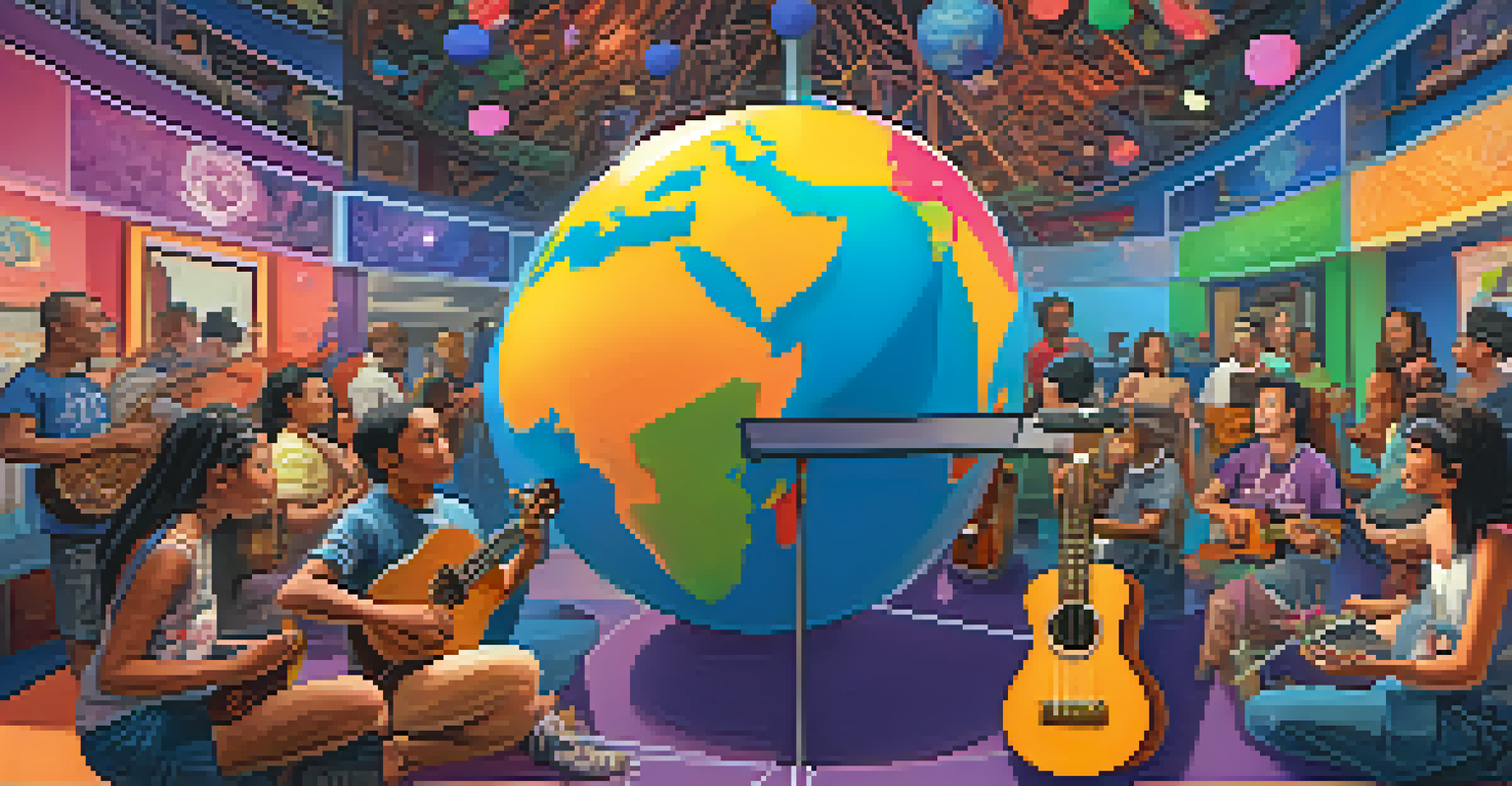The Future of Ukulele Learning with Virtual Reality

Introduction to Virtual Reality in Music Education
Virtual reality (VR) is making waves in various fields, and music education is no exception. Imagine strumming a ukulele in a vibrant virtual environment where you can learn at your own pace. This immersive experience can transform how we approach learning an instrument, making it both engaging and effective.
Music is the shorthand of emotion.
With VR, you can practice in settings that mimic live performances or intimate jam sessions, enhancing your skills in a way traditional methods can't. The gamification of learning is particularly appealing, as it encourages players to practice more often and with greater enthusiasm.
As technology advances, the potential for VR in ukulele education is vast. It can bridge the gap between beginners and advanced players, fostering a community that thrives on shared experiences and collaboration.
Benefits of Learning Ukulele with VR Technology
Learning the ukulele through VR offers a range of benefits that can elevate the experience. For starters, it provides instant feedback on your playing, allowing you to make adjustments in real time. This immediate response can significantly accelerate the learning process compared to traditional methods.

Moreover, VR can create a stress-free environment, making it easier for learners to experiment and explore different styles without the fear of judgment. This is particularly valuable for beginners who may feel intimidated in a conventional classroom setting.
VR Makes Learning Ukulele Fun
Virtual reality transforms the ukulele learning experience by creating immersive environments that engage and motivate learners.
Additionally, learners can access a variety of tutorials and resources right within the VR space, minimizing the need for external materials. This all-in-one approach not only saves time but also keeps the learning journey organized and focused.
How VR Can Enhance Practice Sessions
Practice sessions can often feel monotonous, but VR has the power to change that. By immersing yourself in interactive environments, you can make practice feel like an exciting adventure rather than a chore. Whether it's playing on a beach or in a concert hall, the setting can inspire creativity.
Technology is best when it brings people together.
With features like virtual instructors, you can receive personalized guidance tailored to your skill level. This means that whether you're a novice or an experienced player, there's always something new to learn in a supportive environment.
Furthermore, VR can simulate group practices, allowing players to jam with friends or fellow learners regardless of physical location. This social aspect not only builds camaraderie but also provides a sense of accountability, encouraging consistent practice.
Creating a Virtual Community for Ukulele Players
One of the most exciting prospects of VR in ukulele learning is the potential for community building. Virtual platforms can connect players from around the world, creating a rich tapestry of shared knowledge and experiences. Imagine joining a global ukulele circle, sharing tips, and performing together, all from the comfort of your home.
These virtual communities can host events, workshops, and even competitions, fostering a sense of belonging among players. It breaks down geographical barriers, allowing for diverse influences and styles to flourish.
Community Building in VR
VR platforms foster global connections among ukulele players, enabling collaboration and shared experiences beyond geographical limitations.
Moreover, the ability to collaborate with musicians from different backgrounds can enhance your playing style. Exposure to new techniques and cultural influences can inspire creativity, pushing you beyond your comfort zone.
Challenges of Integrating VR into Ukulele Learning
While the benefits of VR are compelling, there are challenges to consider. The cost of VR equipment can be a barrier for many aspiring musicians, limiting access to this innovative learning method. However, as technology becomes more widespread, prices are likely to decrease, making it more accessible over time.
Another challenge is the need for a stable internet connection and appropriate space to practice. Not everyone may have the luxury of a dedicated area for VR sessions, which could hinder the experience. Creative solutions will need to be developed to accommodate various living situations.
Lastly, there’s the potential for technology fatigue. As with any digital tool, it's essential to balance screen time with real-world practice to ensure well-rounded development as a musician.
The Role of Instructors in VR Learning
In the world of VR ukulele learning, instructors play a crucial role. They can guide learners through the virtual landscape, providing personalized feedback and structured lesson plans. This human element can enhance the learning experience, ensuring that students feel supported throughout their journey.
Instructors can also create tailored VR lessons that cater to the specific needs and interests of their students. This customization can lead to a more engaging learning environment, where students are eager to participate and explore.
Instructors Enhance VR Learning
Instructors play a vital role in VR by providing personalized guidance and structured lessons, enhancing the overall learning experience.
Moreover, experienced instructors can share their expertise in a virtual format, reaching a wider audience. This democratization of knowledge can inspire more people to pick up the ukulele and join the growing community of musicians.
Looking Ahead: The Future of Ukulele Learning
As we look to the future, it's clear that VR holds immense potential for transforming how we learn the ukulele. With ongoing advancements in technology, we can expect even more interactive features and enhancements that will enrich the learning experience. From virtual concerts to collaborative songwriting sessions, the possibilities are endless.
Furthermore, as more educators adopt VR tools, we'll likely see a shift in traditional music education paradigms. This could lead to a more inclusive and diverse approach to teaching, catering to various learning styles and preferences.

Ultimately, the future of ukulele learning with virtual reality promises to be exciting and dynamic. By embracing these innovations, we can create a more engaging and effective way to learn music, inspiring future generations of ukulele players.